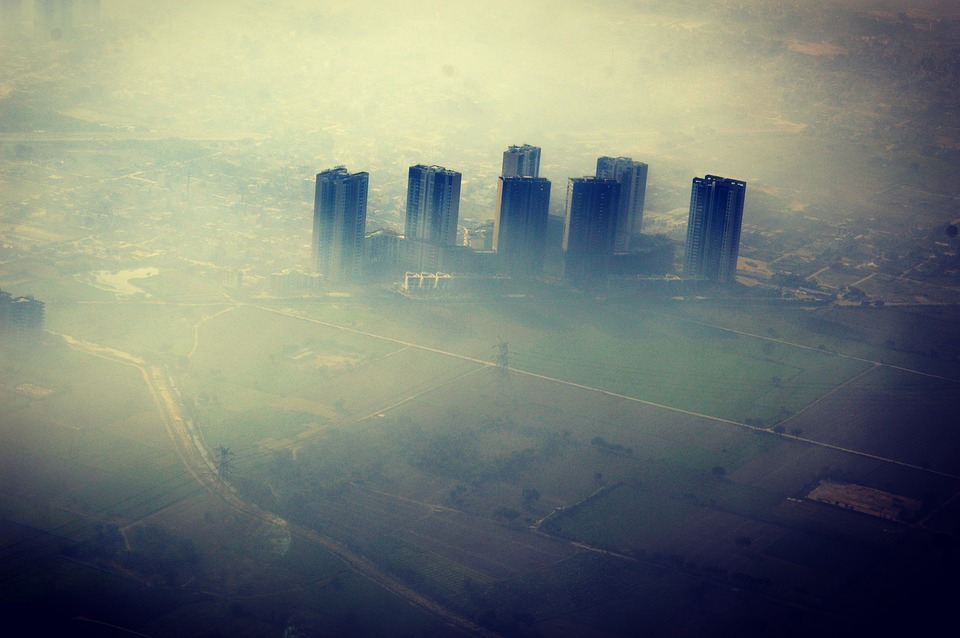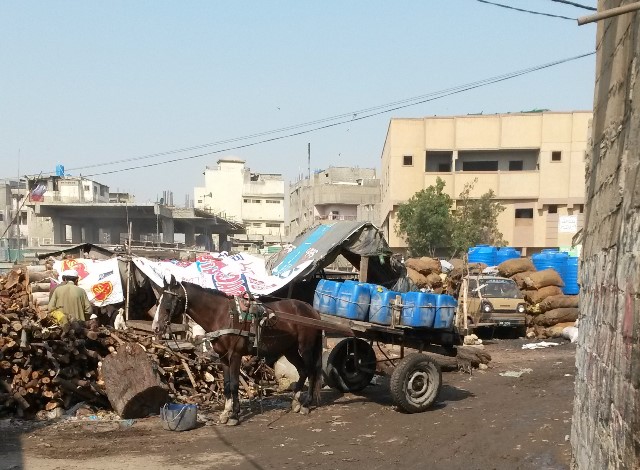MSc Development Studies alum and PhD Candidate at the Centre of African Economies at Roskilde University, Tobias Wuttke, questions how viable de-growth is a concept in light of the climate crisis when we are also trying to combat income poverty globally.
Nobody can deny the relevance of the de-growth concept in light of the climate crisis, and the correlation of economic growth and CO2 emissions. And let’s be clear upfront: I sympathise a lot with the idea of de-growth and imagining alternatives to CO2-emitting and finance-driven global capitalism. However, I find the denunciation of economic growth per se and without qualifications worrisome and unhelpful.
A couple of weeks ago, I attended a book launch on the political economy of de-growth at Roskilde University in Denmark. When I raised the point that it is difficult to reconcile the fight against income poverty with the idea of de-growth, I was heard, but I feel not really understood. It was argued that economic growth is often connected to the depletion of ecological living conditions and the replacement of subsistence forms of living in “poor” countries. I do not want to debate here whether this in itself is a romanticisation of poverty. It was also argued that growth leads to more inequality, as Thomas Piketty has shown.
But as has been raised by Branko Milanovic (who himself is one of the most renowned scholars on global inequality, just like Piketty) in his very interesting debate with Jason Hickel, the concept of de-growth cannot be reconciled with the reduction of income poverty:
- Initial post by Milanovic: http://glineq.blogspot.com/2017/11/the-illusion-of-degrowth-in-poor-and.html
- Response by Jason Hickel: https://www.jasonhickel.org/blog/2017/11/19/why-branko-milanovic-is-wrong-about-de-growth
- Response by Milanovic: http://glineq.blogspot.com/2017/11/the-illusion-of-degrowth-part-ii.html
The fact that politicians and economists still use the concept of economic growth to analyse progress and poverty reduction is not only because of the ideological dominance of neoliberalism and neoclassical economics, as proponents of de-growth often seem to suggest. It is also because economic growth based on productivity growth has improved the lives of a lot of people in the past 100 years (See Our World in Data article on Poverty: https://ourworldindata.org/extreme-poverty).
Our planet has boundaries and CO2 emissions have to be reduced. I do not debate this. This is why it is very important that ideas from the de-growth proponents have to be reconciled with what we know about poverty reduction. I am not a so-called technological optimist. We can’t grow infinitely and just hope that technological progress will reduce CO2 emissions. We need the right policies in place to facilitate this and we have to rethink poverty reduction based on economic growth.
However, it can’t be posited that we do not need productivity increases anymore. The East Asian Tigers reduced poverty impressively by increasing productivity. They increased productivity by exporting to the West. Consumption in the West has been a big part of their ascent and the reduction of income poverty in these countries. What this means is that increased global trade and consumption have had two effects: bringing a lot of people out of income poverty, and emitting more and more CO2.
Simply ignoring this does not help. In the discussion surrounding the book launch it seemed that everything would be better if politicians simply understood that de-growth is the way to go and implemented it. If only they were as smart as we academics, and if only the proponents of de-growth had as much power as its evil opponents. But not all good things go together. Having less growth in the future would mean that many countries remain poor. No wonder Sub-Saharan African politicians are not embracing de-growth. Why would they? This discussion is not helpful.
Nevertheless, we need to reconcile poverty reduction with the fact that we cannot continue warming our planet the way we do. Instead of repeating the globalisation- and Western-consumption-based expansion of East Asia, Sub-Saharan African countries might want to trade and produce more domestically and regionally and still achieve significant productivity increases. Greener technologies have to be incentivised through industrial policy. The Paris-based emission reductions have to be achieved, and politicians need to be pressured to implement credible measures to do so.
A lot of the pieces of the de-growth puzzle should be taken seriously in development economics and implemented and thought about wherever relevant and possible, but proposing de-growth for the global economy is very Western-centric and would deal a big blow to global income poverty reduction. Let’s try to reconcile what we know about economic development and poverty reduction with ideas from the de-growth concept.
Tobias Wuttke (@wtobi93) is a PhD Candidate at the Centre of African Economies at Roskilde University, Denmark. His research is on industrialisation and industrial policy in Sub-Saharan Africa, with a special focus on Nigeria. Prior to that, he has worked for GIZ in Nigeria and Botswana. He graduated from LSE with an MSc in Development Studies in 2018.
The views expressed in this post are those of the author and in no way reflect those of the International Development LSE blog or the London School of Economics and Political Science.






Interesting post! But I think there’s a lot more thought given to this issue than you give credit for – many degrowth authors even on preliminary reading state outright that degrowth policies are centred on the ‘Global North’ whose ecological debt demands this, and economic development and growth of ‘Global South’ countries will be prioritised in an attempt to give postcolonial justice.